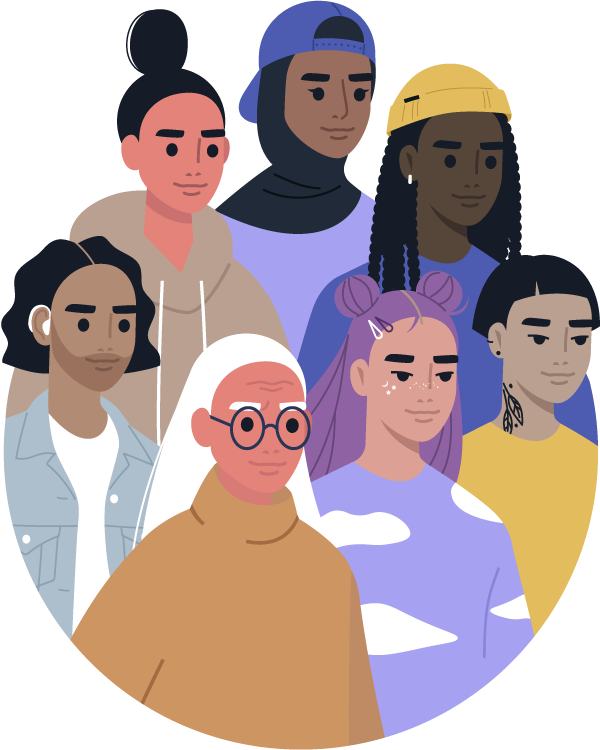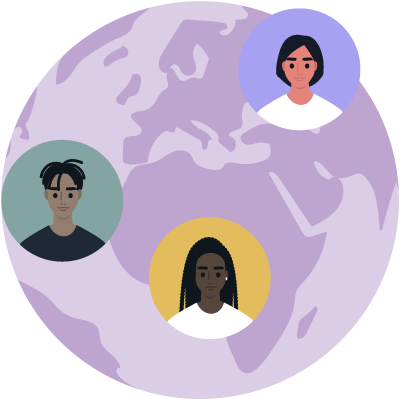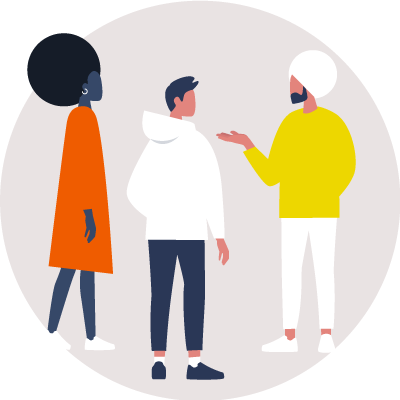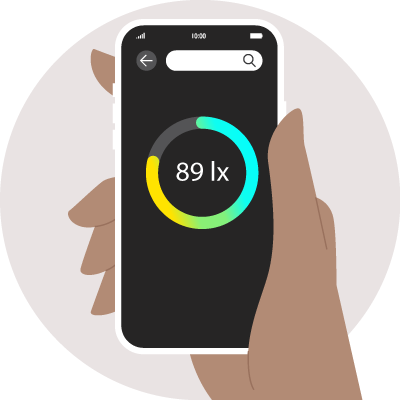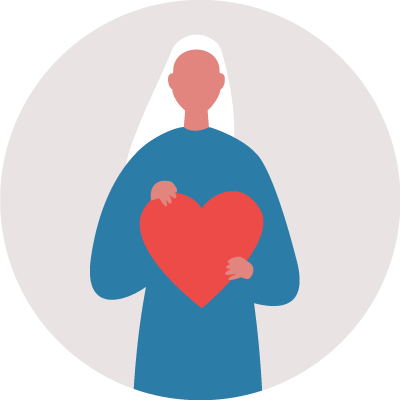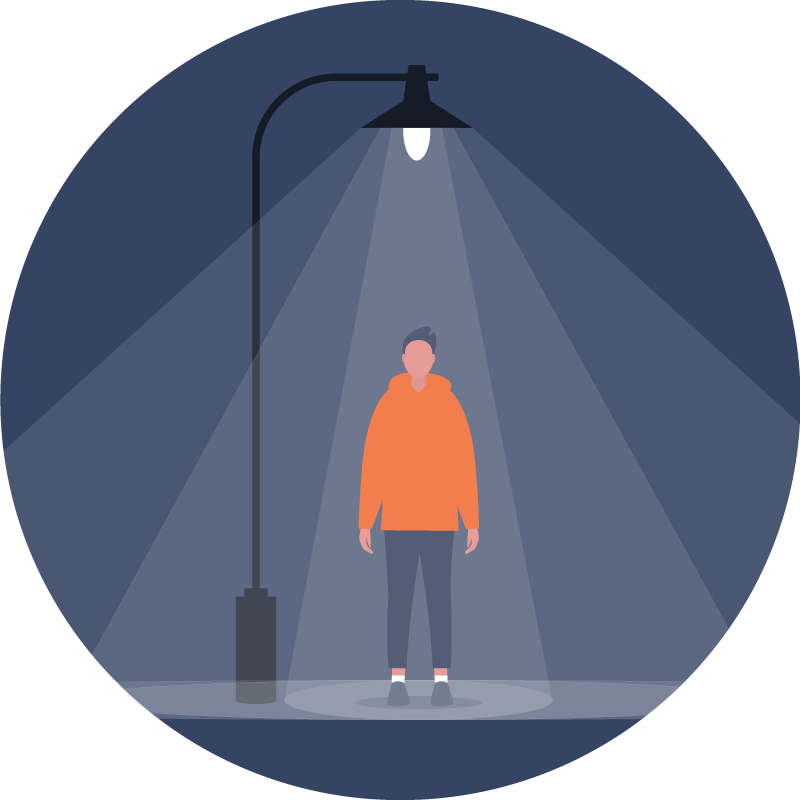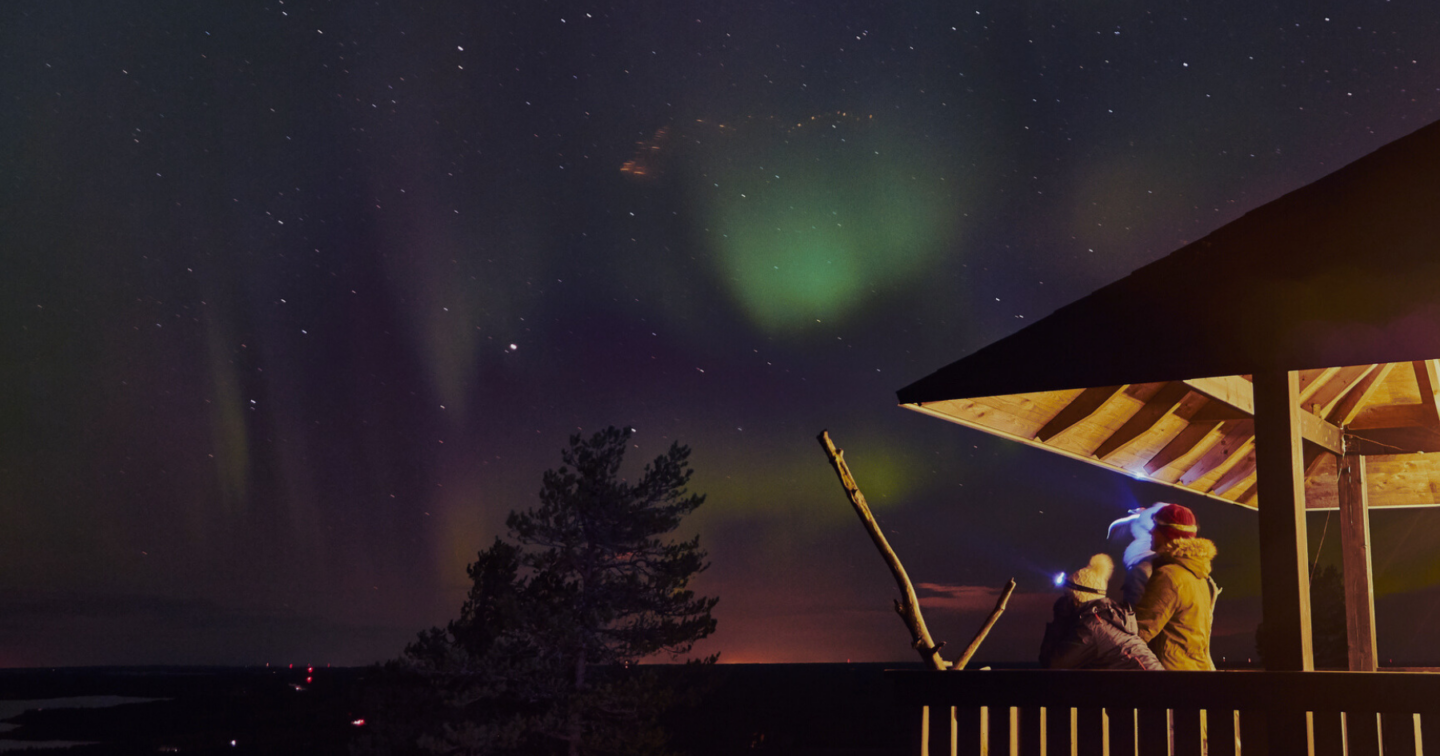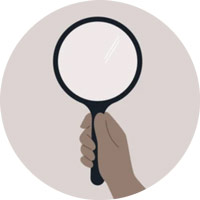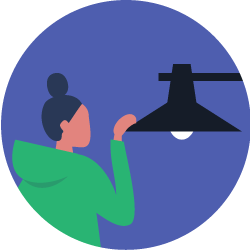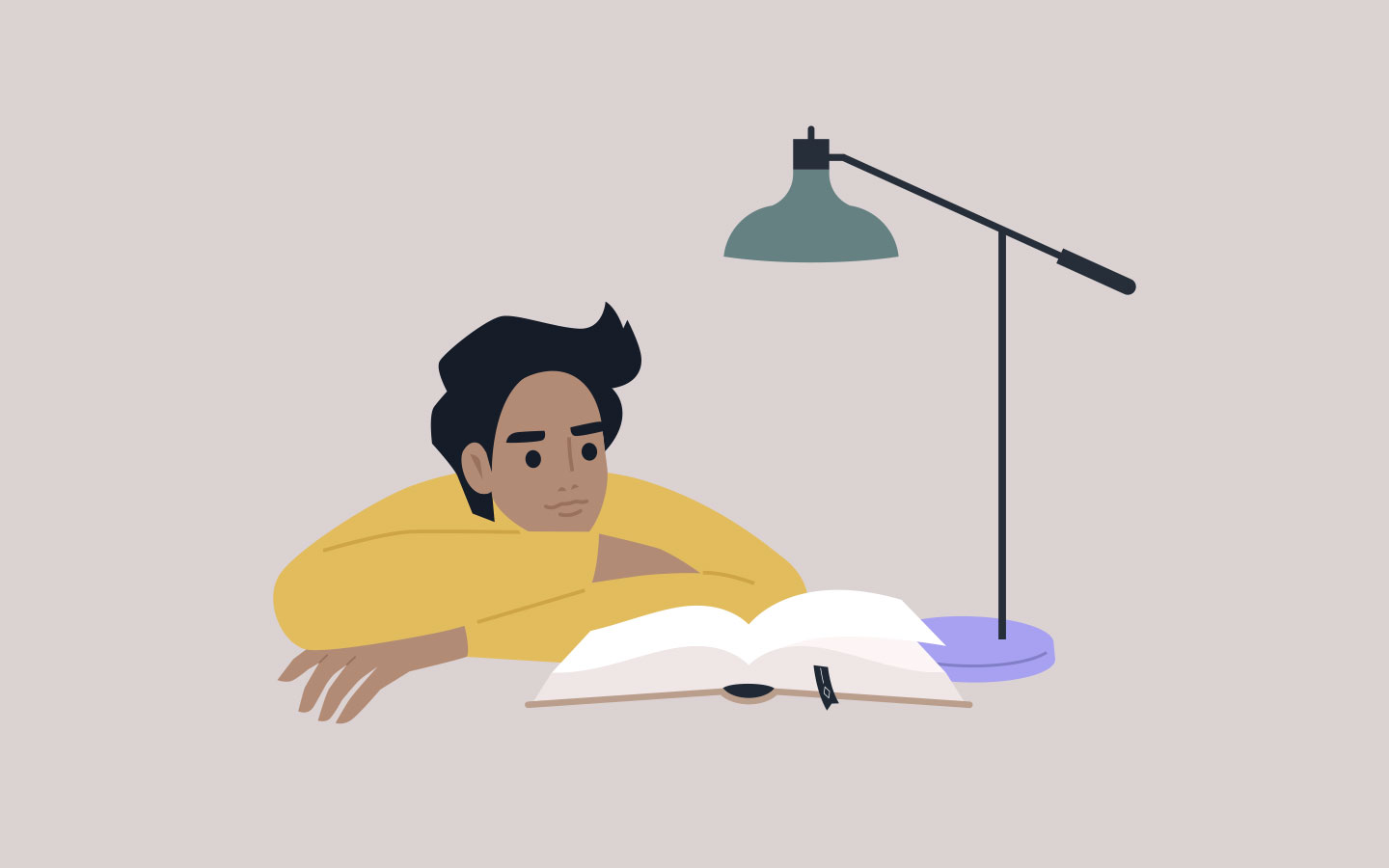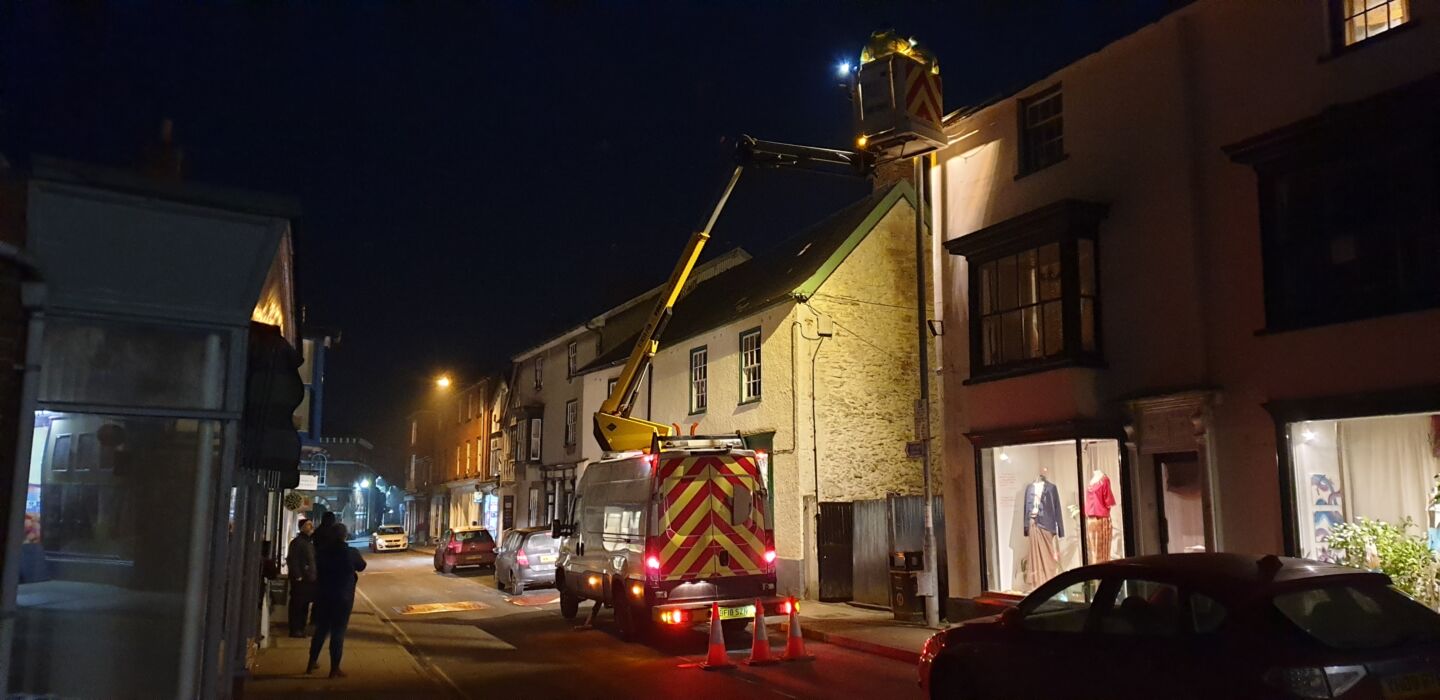
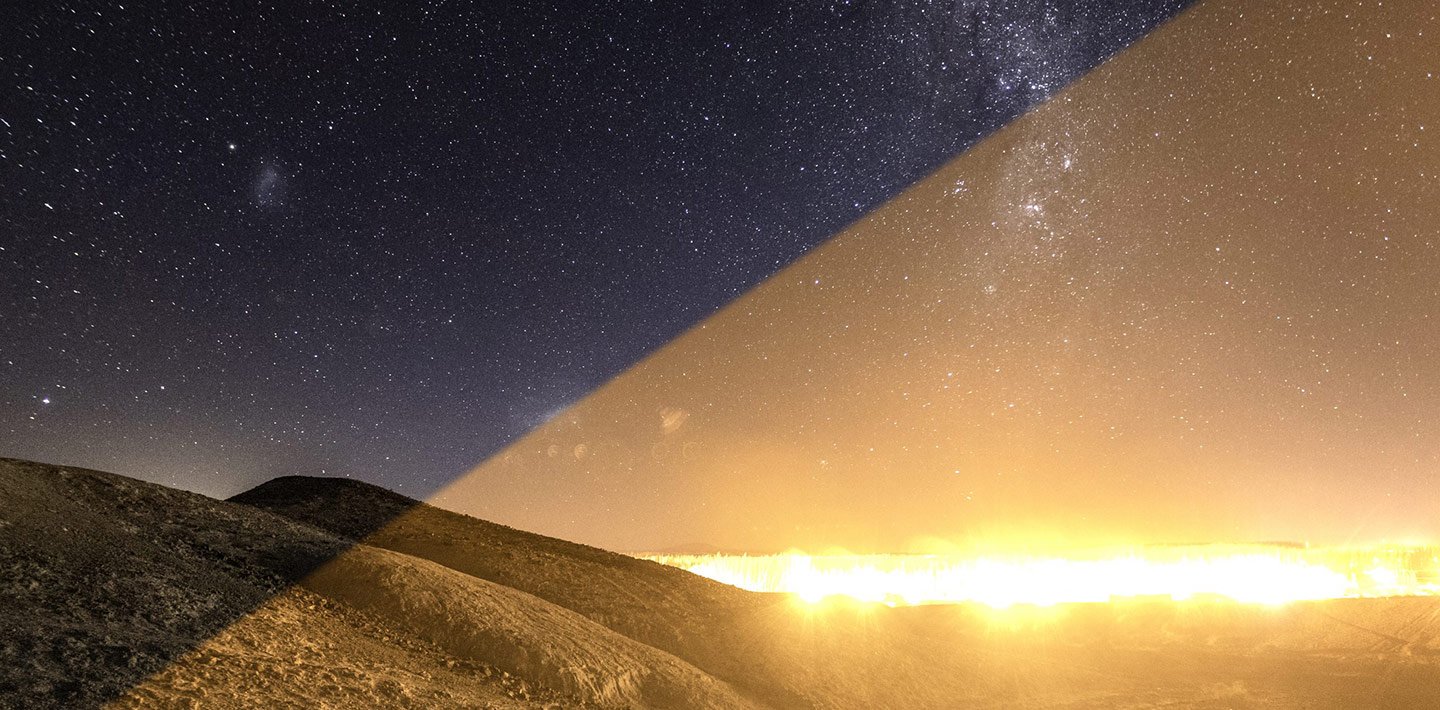
What is light pollution?
Definition of light pollution
Light pollution is the human-made alteration of outdoor light levels from those occurring naturally.
When we over-light, fail to use timers and sensors, or use the wrong color of light, we can negatively affect many parts of our world, including migratory birds, pollinators, sea turtles, and mammals, including humans.
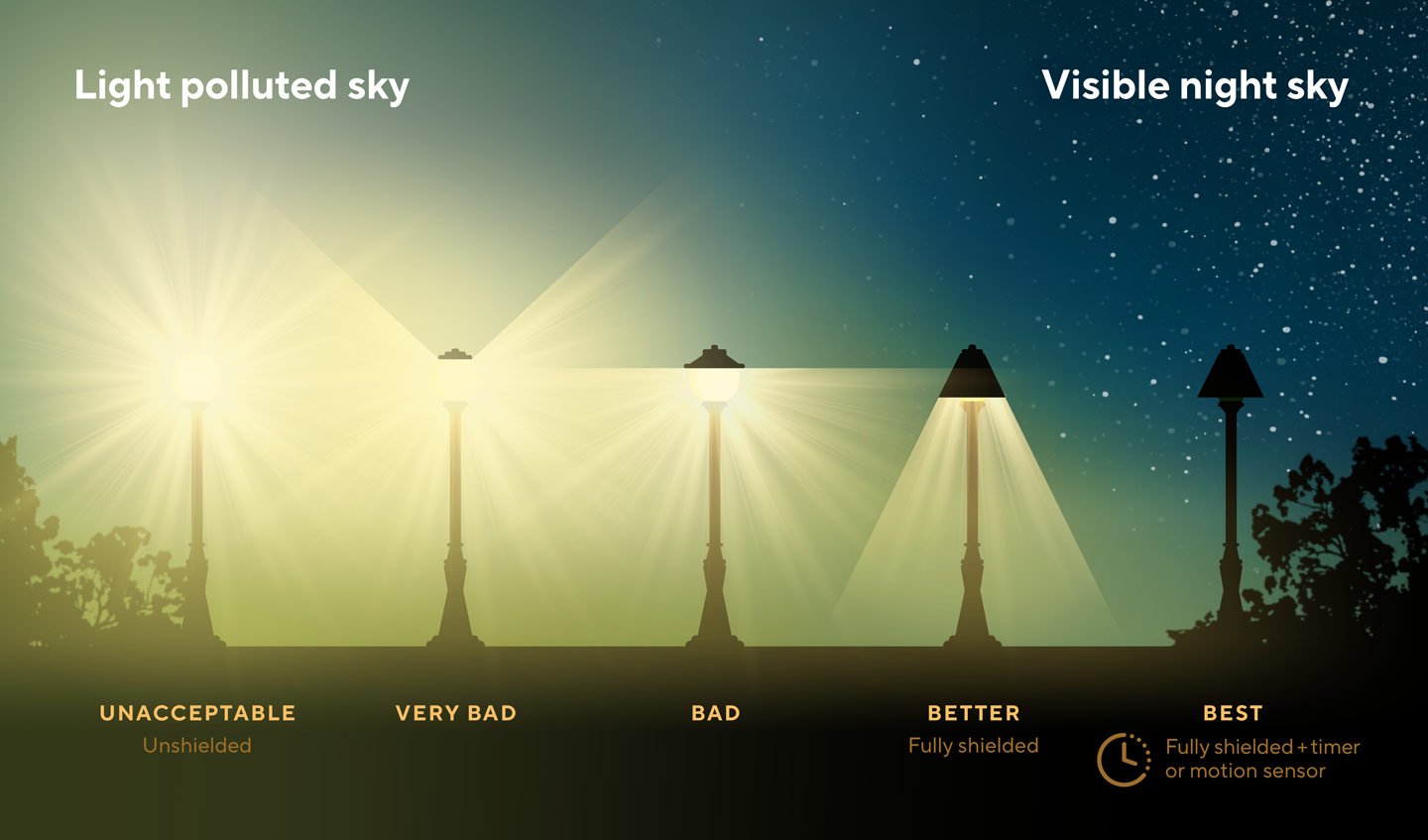
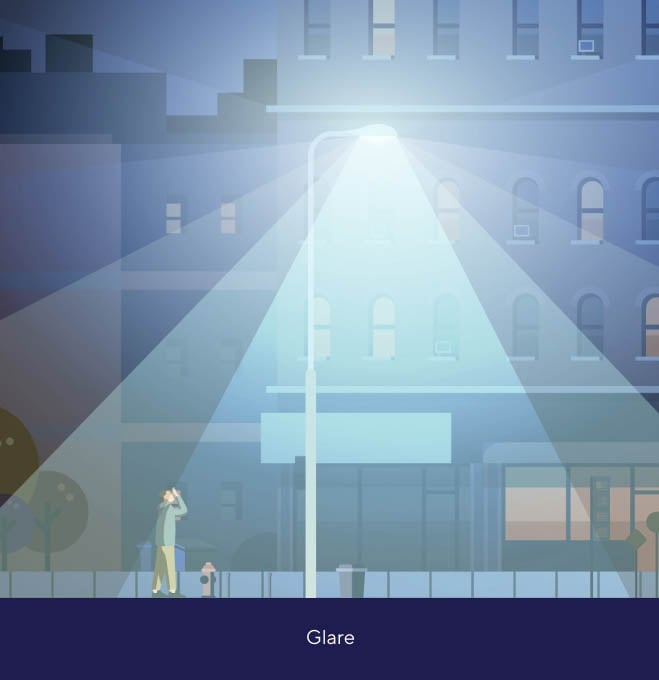
Light can be a pollutant
Most of us are familiar with air pollution, water pollution, and land pollution, but did you know that light can also be a pollutant?
Components of light pollution include:
- Glare — excessive brightness that causes visual discomfort
- Sky glow — brightening of the night sky over inhabited areas
- Light trespass — light falling where it is not intended or needed
- Clutter — bright, confusing, and excessive groupings of light sources
What causes light pollution?
Light pollution is a side effect of industrial civilization.
Its sources include building exterior and interior lighting, advertising, commercial properties, offices, factories, streetlights, and illuminated sporting venues.
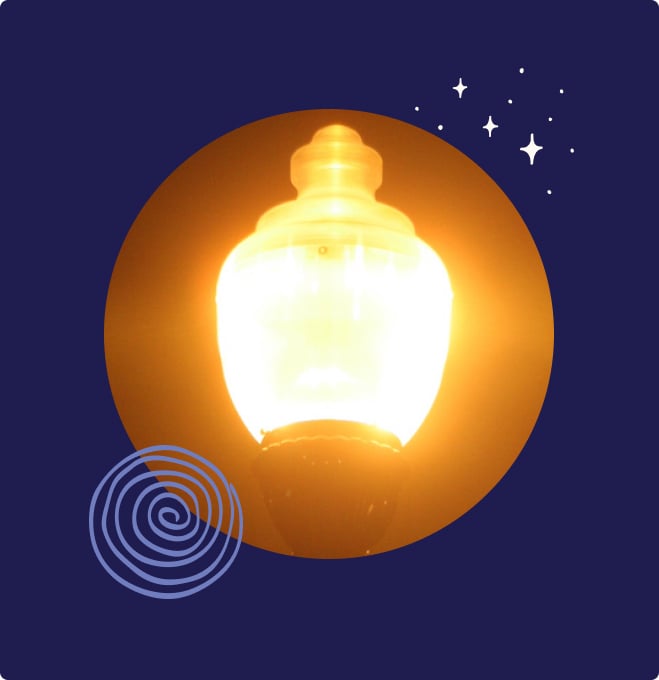
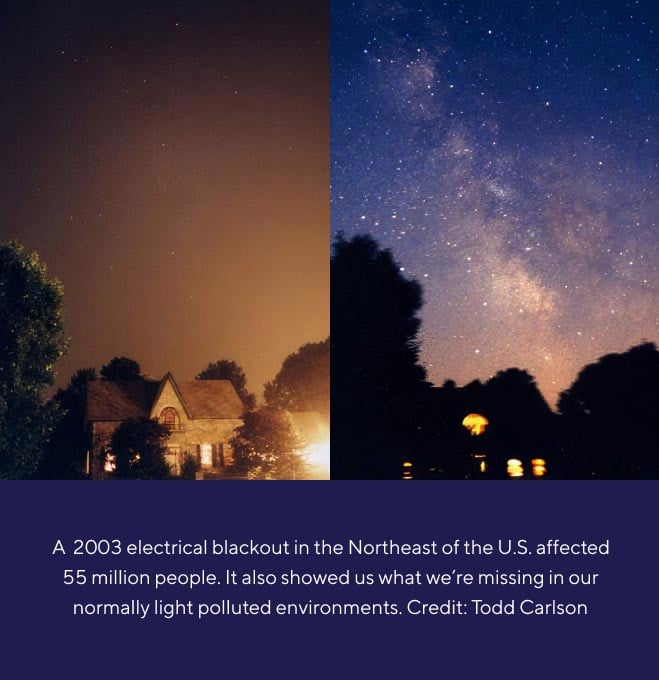
How bad is light pollution?
With much of the Earth’s population living under light-polluted skies, overlighting is an international concern.
If you live in an urban or suburban area all you have to do to see this type of pollution is go outside at night and look up at the sky. How many stars can you see?
According to the 2016 groundbreaking “World Atlas of Artificial Night Sky Brightness,” 80 percent of the world’s population lives under sky glow. In the United States and Europe, 99 percent of the public can’t experience a natural night.
Do I live in a light polluted place?
If you want to find out how bad light pollution is where you live, use this interactive map created from the ”World Atlas” data, or the NASA Blue Marble Navigator for a bird’s eye view of the lights in your town. Google Earth users can download an overlay also created from the “World Atlas” data. And don’t forget to check out the Globe at Night interactive light pollution map data created with eight years of data collected by citizen scientists.
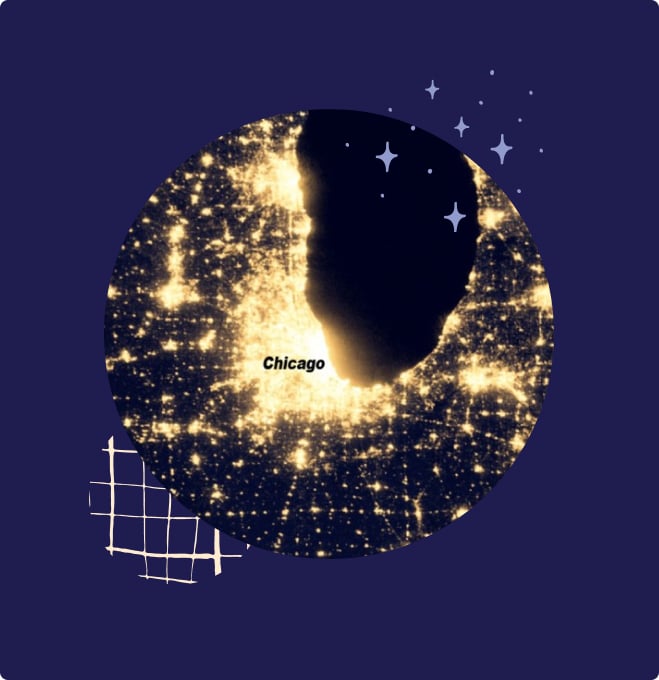
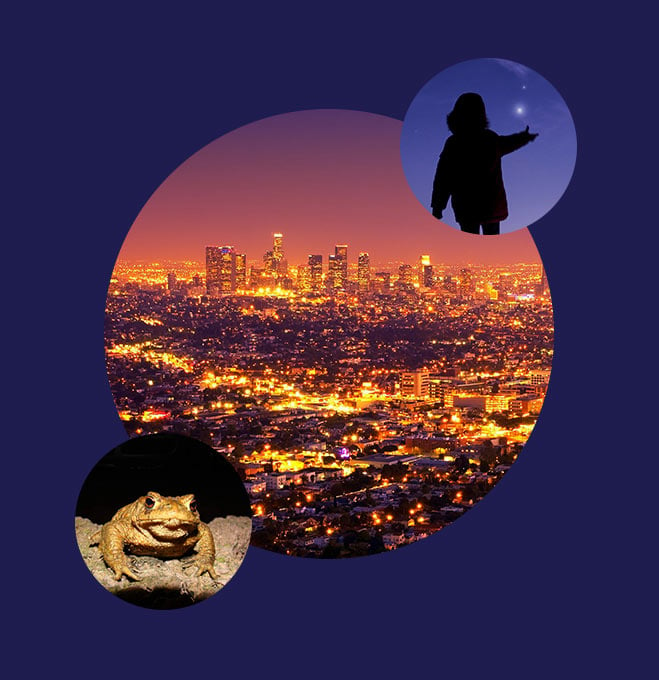
What are the effects of light pollution?
A growing body of evidence links the brightening night sky directly to measurable negative impacts on:
What can be done?
Light pollution affects every citizen. Fortunately, concern about light pollution is rising dramatically. A growing number of scientists, homeowners, environmental groups, and civic leaders are taking action to restore the natural night.
The good news is that light pollution, unlike many other forms of pollution, is reversible, and each one of us can make a difference! Just being aware that light pollution is a problem is not enough — we need to take action.


